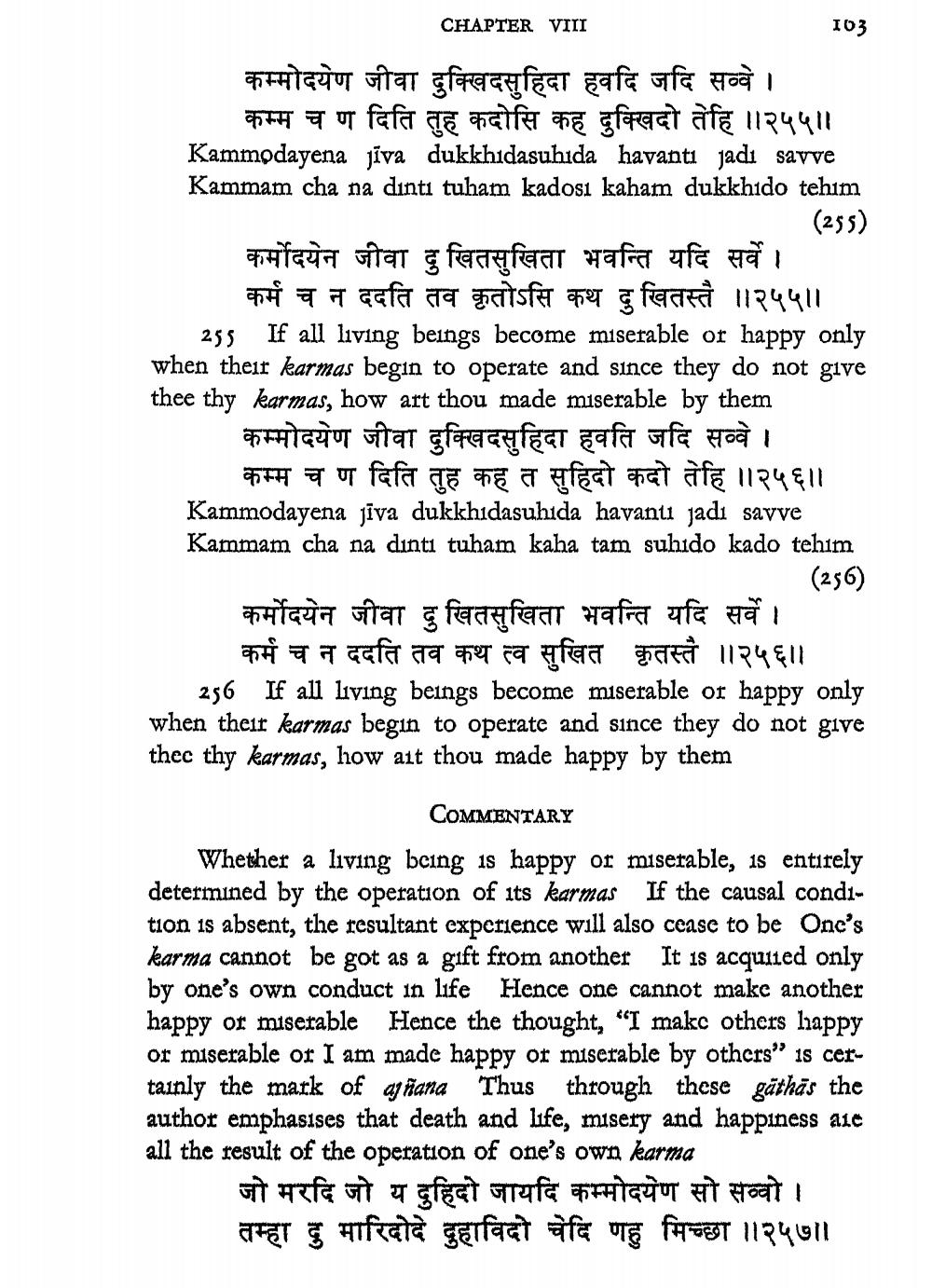________________
CHAPTER VIII
103
कम्मोदयेण जीवा दुक्खिदसुहिदा हवदि जदि सव्वे ।
कम्म च ण दिति तुह कदोसि कह दुक्खिदो तेहि ॥२५५॥ Kammodayena jīva dukkhidasuhıda havanti jadi savve Kammam cha na dinti tuham kadosi kaham dukkhido tehim
(255) कर्मोदयेन जीवा दुखितसुखिता भवन्ति यदि सर्वे।।
कर्म च न ददति तव कृतोऽसि कथ दु खितस्तै ॥२५५॥ 255 If all living beings become miserable or happy only when their karmas begin to operate and since they do not give thee thy karmas, how art thou made miserable by them
कम्मोदयण जीवा दुक्खिदसुहिदा हवति जदि सव्वे ।
कम्म च ण दिति तुह कह त सुहिदो कदो तेहि ॥२५६॥ Kammodayena jīva dukkhidasuhida havantı jadi sayve Kammam cha na dinti tuham kaha tam suhido kado tehim
(256) कर्मोदयेन जीवा दु खितसुखिता भवन्ति यदि सर्वे ।
कर्म च न ददति तव कथ त्व सुखित कृतस्तै ॥२५६॥ 256 If all living beings become miserable or happy only when their karmas begin to operate and since they do not give thec thy karmas, how ait thou made happy by them
COMMENTARY Whether a living being is happy or miserable, is entirely determined by the operation of its karmas If the causal condition is absent, the resultant experience will also cease to be Onc's karma cannot be got as a gift from another. It is acquired only by one's own conduct in life Hence one cannot make another happy or miserable Hence the thought, "I makc others happy or miserable or I am made happy or miserable by others" is certainly the mark of añana Thus through these găthas the author emphasises that death and life, misery and happiness ale all the result of the operation of one's own karma
जो मरदि जो य दुहिदो जायदि कम्मोदयेण सो सव्वो । तम्हा दु मारिदोदे दुहाविदो चेदि गहु मिच्छा ॥२५७॥




